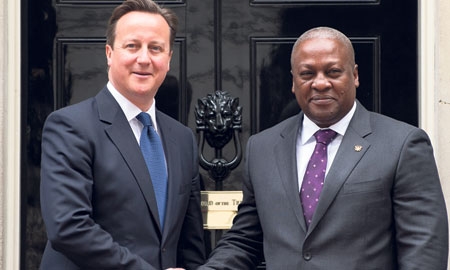Recent forecasts by the World Bank say Ghana’s GDP growth for 2014 will grow by a mere 7.4 per cent. At a time when many first-world economies are still hard pressed to barely tread water, 7.4 per cent is highly enviable. Put in Ghana’s recent context, however, it almost seems low. Take into consideration that in 2011, the economy expanded by 15 per cent thanks to the commencement of oil production – ranking its GDP growth third in the world after Macao and Mongolia – and suddenly 7.4 per cent seems meek in comparison.
Context aside, this robust figure – along with the other positive growth rates dating all the way back to 1984, which, incidentally, is well before the first significant oil discoveries were made – represents Ghana’s ongoing potential and demonstrates how serious the government is about becoming a middle-income country and reducing poverty levels. Already, Ghana has achieved lower middle-income status and has pushed poverty to less than 30 per cent of the population.
As the first sub-Saharan state to gain independence, Ghana has long set the standard in the region. It is a model in political stability, sustained economic growth and respect for rule of law.
“Ghana continues to support peacekeeping activities in West Africa, sharing our experiences in democracy,” explains Ghanaian High Commissioner to the UK, Professor Kwaku Danso-Boafo. “Like the late former president, President John Dramani Mahama believes in the ideology of social democracy. He was part and parcel of the programme that the late Professor John Atta Mills initiated, including the Better Ghana Agenda (BGA).”
Under the BGA, the government is striving to improve a variety of areas and its efforts include initiatives to bolster the financial and banking system, strengthen the young oil and gas industry, advance healthcare and education, establish more sustainable practices towards the environment, enhance its human capital, bolster security and economic productivity, and propel Ghana towards the international arena.
In addressing Parliament soon after being elected in December 2012, President Mahama highlighted both Ghana’s progress and the challenges that lie ahead.
“Ghana has witnessed impressive development in the last two decades. There have been improvements in roads and social infrastructure across the length and breadth of this country. Health facilities have been expanded and access improved, and so have educational institutions with the private sector playing a pivotal role.
“Real challenges however remain even as we have made these advances. As a developing middle-income country, there is still a lot more to be done to further reduce poverty, expand infrastructure and provide more social services for our people. These challenges are formidable, but they are not insurmountable… “Over the next four years, we will build an economy that rewards hard work and nurtures Ghanaian entrepreneurs and businesses whose prospects will not be tied to political cycles and patronage.”
His spirit of realistic optimism sets the tone for Ghana as it confronts certain obstacles, such as power supply. Oil was discovered only discovered seven years ago in Ghana at the Jubilee oilfield, and production stands at over 110,000 barrels per day (bpd). The government plans to invest $20 billion in new oil discoveries through 2018, in order to boost the supply of both oil and gas. Although oil production is projected to grow manifold, owing to pumping at new sites and higher output at Jubilee, it is gas that is vital if the country is to lower costs of energy generation and reduce its dependence on gas imports from Nigeria.
Aside from hydrocarbons, Ghana’s other strong sectors include mining (principally gold), agriculture (cocoa) and construction. Revenues from the growing oil industry, coupled with growing foreign direct investment, are expected to buoy these sectors and keep Ghana’s economy well rounded and strong.

0 COMMENTS